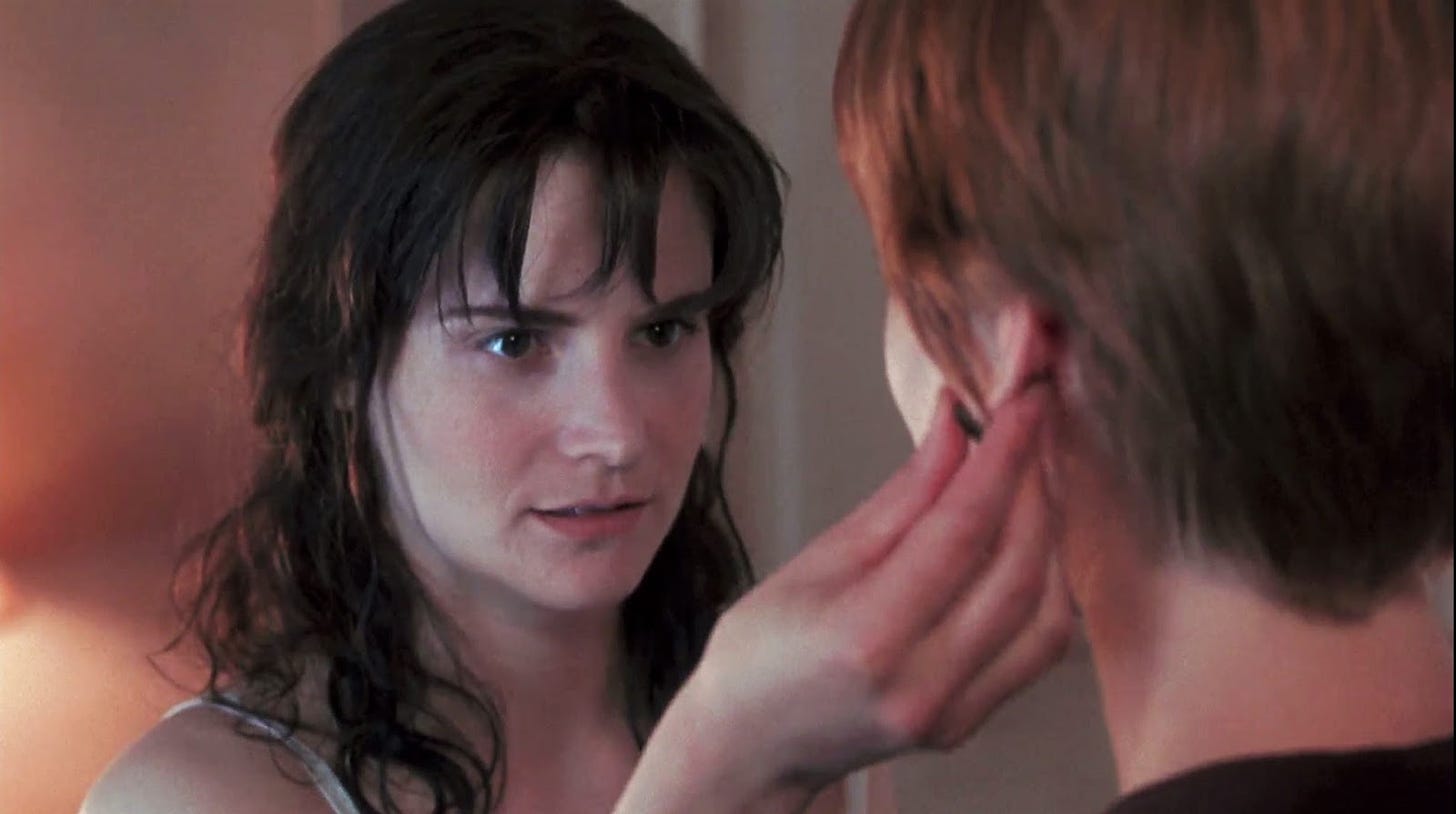The Movie Jennifer Jason Leigh Was Making
In 'Single White Female,' a great actress creates a character for a better movie.
“I love myself like this.” — Jennifer Jason Leigh, Single White Female
In my recent piece comparing the new Apple TV+ version of Presumed Innocent with Alan J. Pakula’s 1990 adaptation of the same Scott Turow novel, the side-by-side comparison mostly favored the movie, which benefited from more evocative direction, tighter plotting, and a better ending. Yet the one category where the two projects battled close to a draw—with the series getting the slight edge—were the performances, led by Ruth Negga’s exceptional work as the embattled wife of a prosecutor accused of murdering his mistress. I consider Negga one of the greatest actresses alive, but when asked in the comments for films of hers I’d recommend, only two came to mind: The Jeff Nichols film Loving, about the interracial couple at the center of the Loving v. Virginia case, and Rebecca Hall’s Netflix drama Passing, in which she plays a light-skinned Black woman in ‘20s New York who “passes” as white in society and in her marriage. Beyond those titles, and her main role on the AMC series Preacher, she’s had mostly small roles or been in projects unworthy of her talent, though I remain convinced that she will get the recognition (and roles) she deserves.
Revisiting Presumed Innocent also sent me on a week-long bender of early ‘90s thrillers, some of which I’d never seen before (Jagged Edge, The Hand That Rocks the Cradle, Guilty as Sin) and others (Unlawful Entry, Pacific Heights) that I hadn’t seen in the 30-plus years since they came out.* All of these films are significantly flawed, sometimes fatally so, though Unlawful Entry is much stronger than I remembered, with sustained tension from the jump and a surprisingly provocative treatment of masculinity and police misconduct. But each gives the actors opportunities to flourish in the villain role: Rebecca de Mornay as the icy interlocutor of a happy family, taking a nanny job as part of a revenge plot involving her late husband and her own desire for motherhood; Don Johnson as the deadly lothario trapping his new lawyer into the awful secrets of their attorney-client privilege; Ray Liotta as a dirty cop who targets a married couple after a break-in, looking to home in on the wife; Michael Keaton as the nightmare tenant who tries to manipulate a cash-strapped couple out of their San Francisco fixer-upper; and Jeff Bridges as a slick womanizer who coaxes an attorney into defending him for murdering his rich wife.
The basic point to this long preamble: Actors frequently outclass the material, and there’s often a marked distance between the amount of creative investment they put into a character and what these projects give them in return. That cognitive dissonance is extreme in the climax of the TV version of Presumed Innocent, in which the ludicrous twist is mitigated by Negga’s heartbreaking reaction to it. And it struck me again while rewatching Jennifer Jason Leigh in Barbet Schroeder’s Single White Female, an erotic thriller that drafts effectively off Rosemary’s Baby, but lacks the ambition to be more than a compelling, by-the-numbers page-turner. Yet the end result isn’t in Leigh’s control any more than it was in Negga’s power to tackle David E. Kelley before he satisfied a whodunit plot in the most ridiculous and arbitrary way possible. Actors can only manage their piece of the overall puzzle.
Keep reading with a 7-day free trial
Subscribe to The Reveal to keep reading this post and get 7 days of free access to the full post archives.




